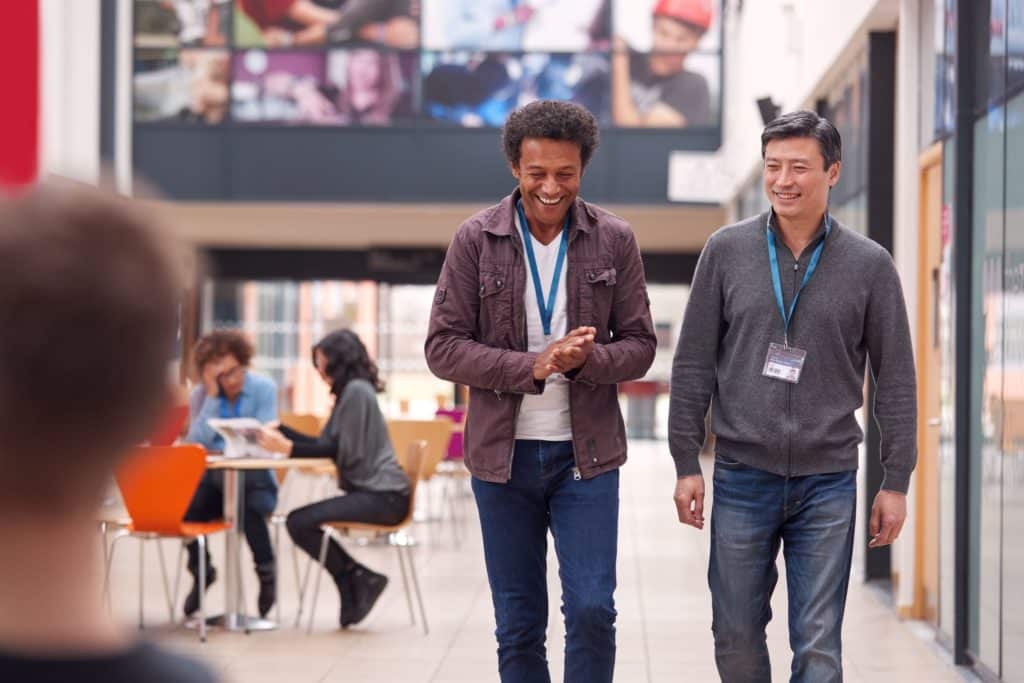Lesson plans, behavioral issues, parent meetings, PLC meetings, pacing guides, and state-mandated testing are just a few endeavors that teachers face throughout a school year. School administrators may empathize with teachers by recalling facing the same undertakings as they faced classrooms full of students prior to running school buildings.
Empathy allows one to share another’s feelings as they directly relate to the situations. We will be exploring how principals may support their teachers through utilizing empathy, such as empathy versus, sympathy, open-door policies, problem-solving with teachers, and teacher support systems within your school.
Empathy Vs. Sympathy as a Principal
Teachers make a direct impact on student learning by teaching students in classrooms. Principals make a direct impact on student learning by empowering teachers to teach. Empathetic principals’ express compassion and share feelings and walk with teachers regarding students and their own needs. Sympathetic principals show pity for teachers by providing immediate “yes” or “no” from a distance without relating with them concerning student and their own needs.
“Empathy is our ability to understand how someone feels while sympathy is our relief in not having the same problems” (Psychiatric Medical Communications Team, 2022).
An example of empathizing with teachers as a principal would be to bring a student with a behavioral issue to their office and try to dig deep and resolve the issue rather than talk to the teacher or share with them to keep trying to be positive. Principals begin to know how teachers feel about situations, positives, and negatives they are experiencing by having an open-door policy.
Supporting Your Teachers with Empathy
Open-Door Policy
As a school administrator, I have learned that an open-door policy is much more than having your office door open so that anyone can sit down and talk. An open-door policy is getting to know your teachers and staff and their needs. It does not always mean that one will get a “yes”, but they will be listened to and cared about. It means that their needs and cares are genuinely important.
As a school administrator, teachers know when you care and will walk with them. I consider an open-door policy an opportunity for not only teachers to grow, but school administrators to grow as well. It is where tears are shed, cheering erupts, prayers go up, and schools go from good to great. An area of an open-door policy that I have participated in that has been highly beneficial for school is problem-solving sessions.
Problem-Solving with Teachers
Problem-solving sessions are welcomed once an open-door atmosphere has been established. Problem-solving does not mean that answers will automatically come forth; it means that a problem will be solved, whether it be the one at hand or another. School administrators allow teachers’ voices to be heard and valued by solving issues with teachers. Problem-solving acknowledges a problem and enables a variety of avenues on how it can be solved.
By having multiple trusted perspectives allows a person security to be open to others. School buildings require multiple people to solve multiple problems for one main goal: provide students the best opportunities possible. Efficient team problem-solving between teachers and school administrators solves a momentary issue and makes the school stronger for what is yet to come — positive or negative. This is an aspect of teacher support that sets a positive atmosphere for entire schools.
Teacher Support Systems for Your School
Teacher support systems are systems that enable teachers to feel supported in the school building they teach. The best support teachers may have is school leadership and the people. When teachers know that school leadership has their back, cares about them as teachers and individuals, cares about the students, and will do their best to provide opportunities for them to succeed, the teachers know that a support system is implemented.
One of the biggest compliments I received as a principal is that the school felt like a family. The staff felt together overall, the students felt loved, and people wanted to be there. Did issues arise? Yes. Did everyone always get along? No. Was everything perfect? Absolutely not, but that is family. Family is not about always having everything together.
Family is about loving one another regardless and having each other’s backs due to the bond that is there. In my eyes, that is the best support system one may have. As in my own life, I know the biggest support system I have is my family and I am so grateful for them every day! If teachers and students know your main priority is them as people, everything else will come together.
Closure
Just as students know if teachers care or not (I always say kids can sniff out if you are being real or not very quickly), teachers know if school leaders care or not (this also goes for school leaders knowing if district leaders care or not as well.) Sympathy is a good thing and necessary, but it is knowledge and pity from a distance.
Empathy is understanding feelings and rolling up the sleeves to stand with people as they face challenges. Our students, teachers, and leaders deserve empathy from all that directly impact them because, ultimately, the impact made on the adults will impact every student that walks school hallways each day.
Ready to get started on your administration and leadership journey? Explore our administration and leadership programs to get started today!




